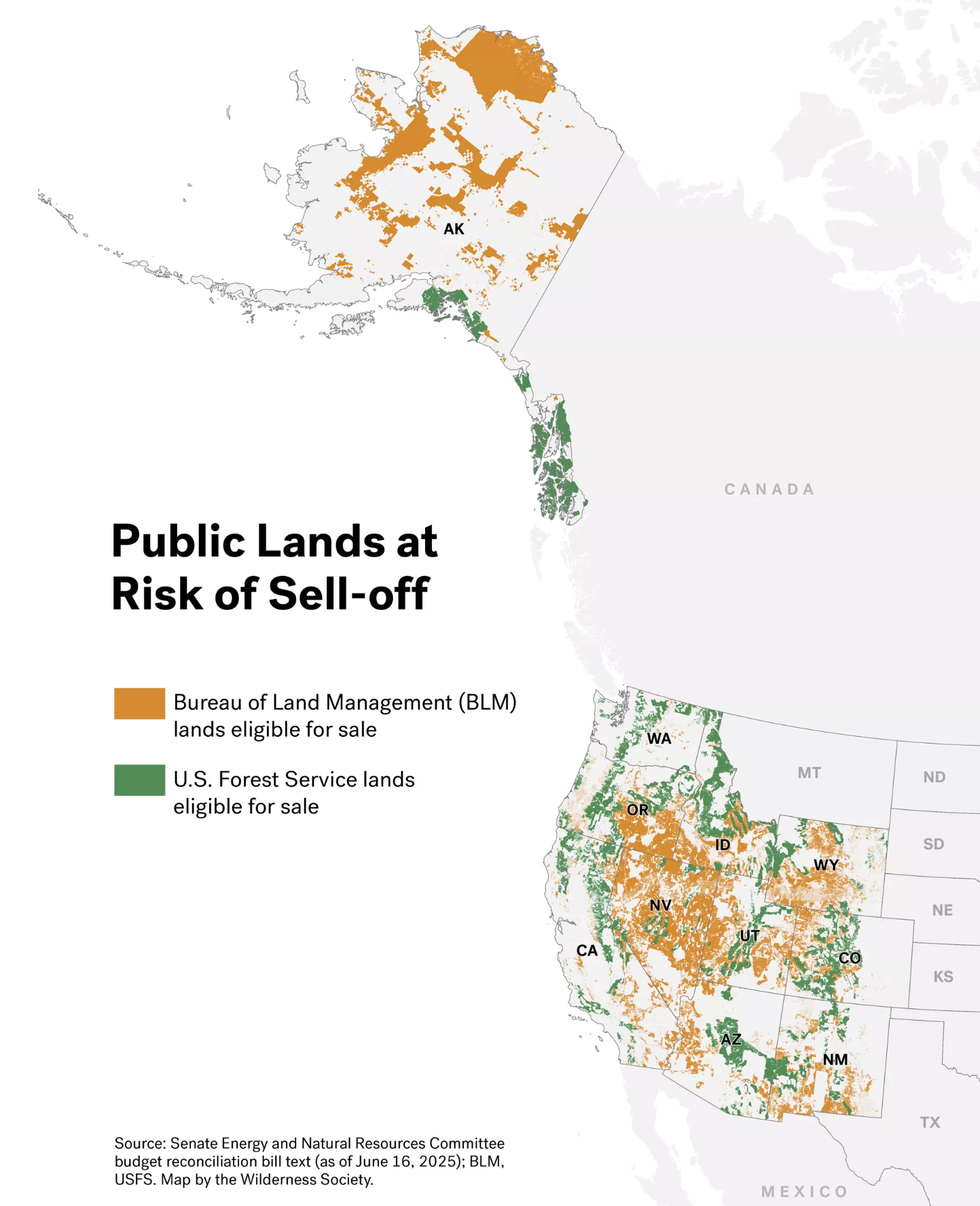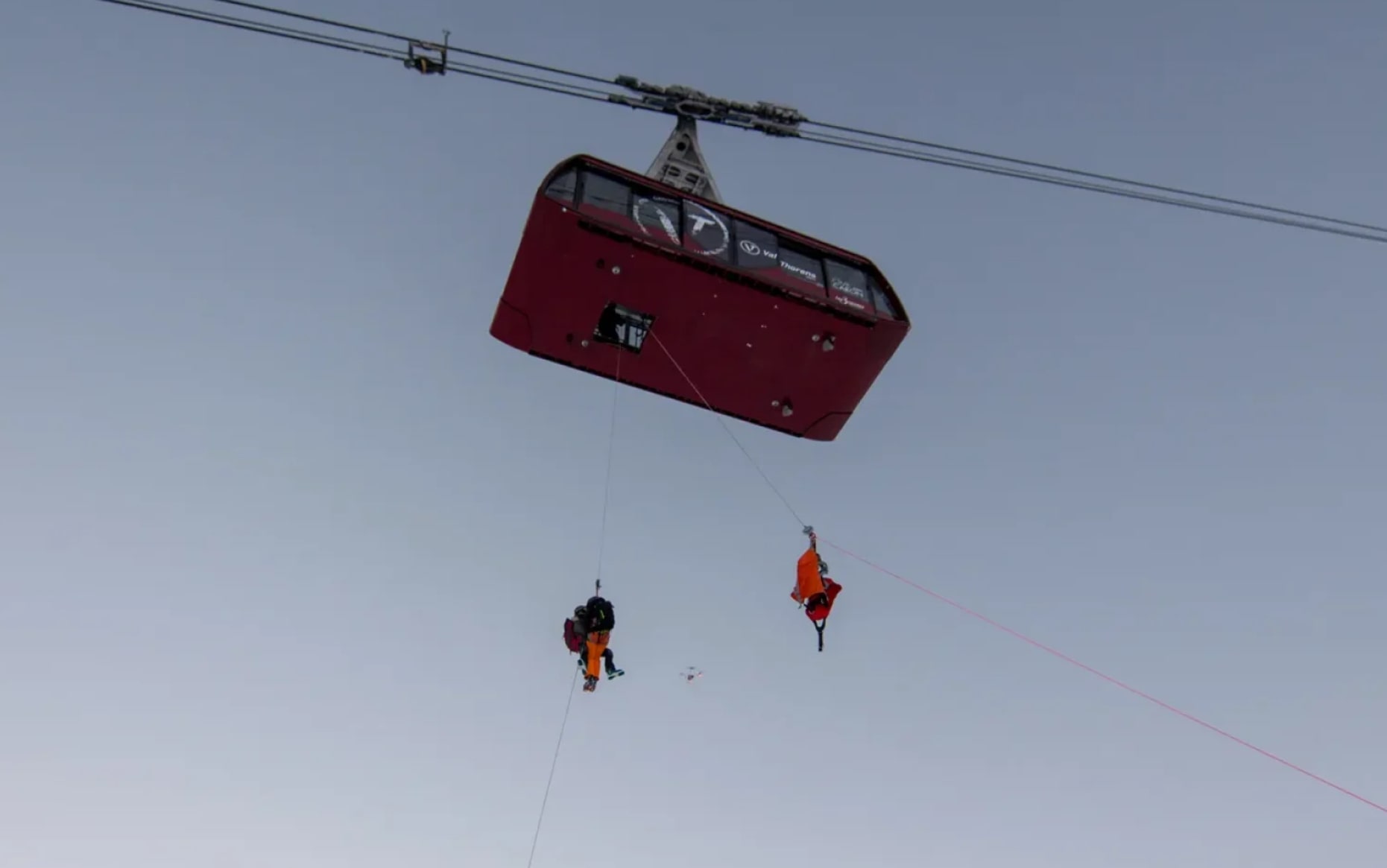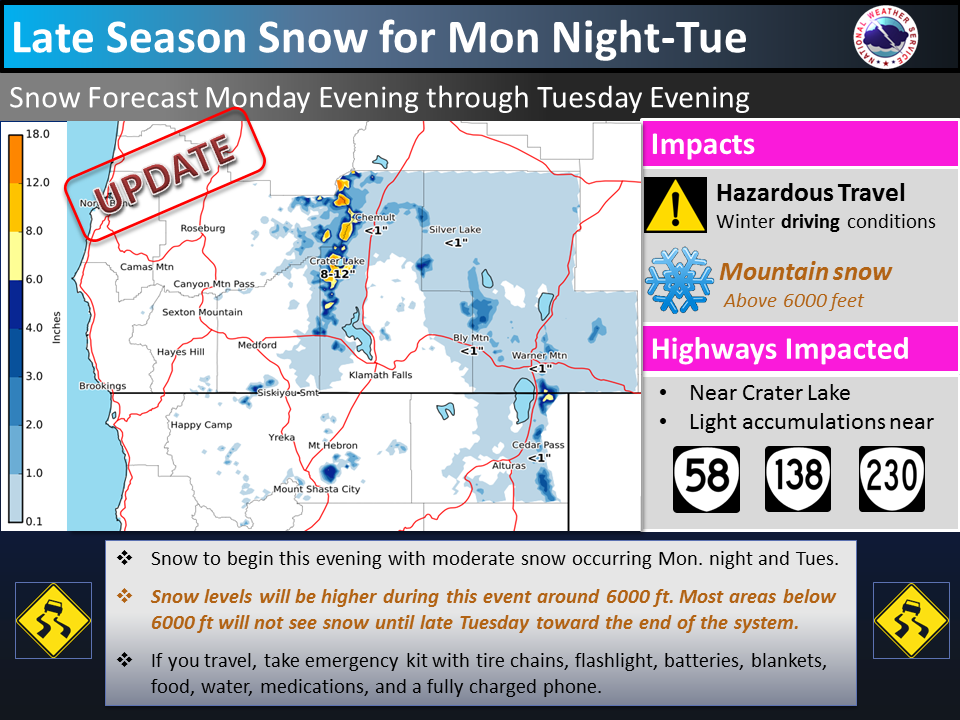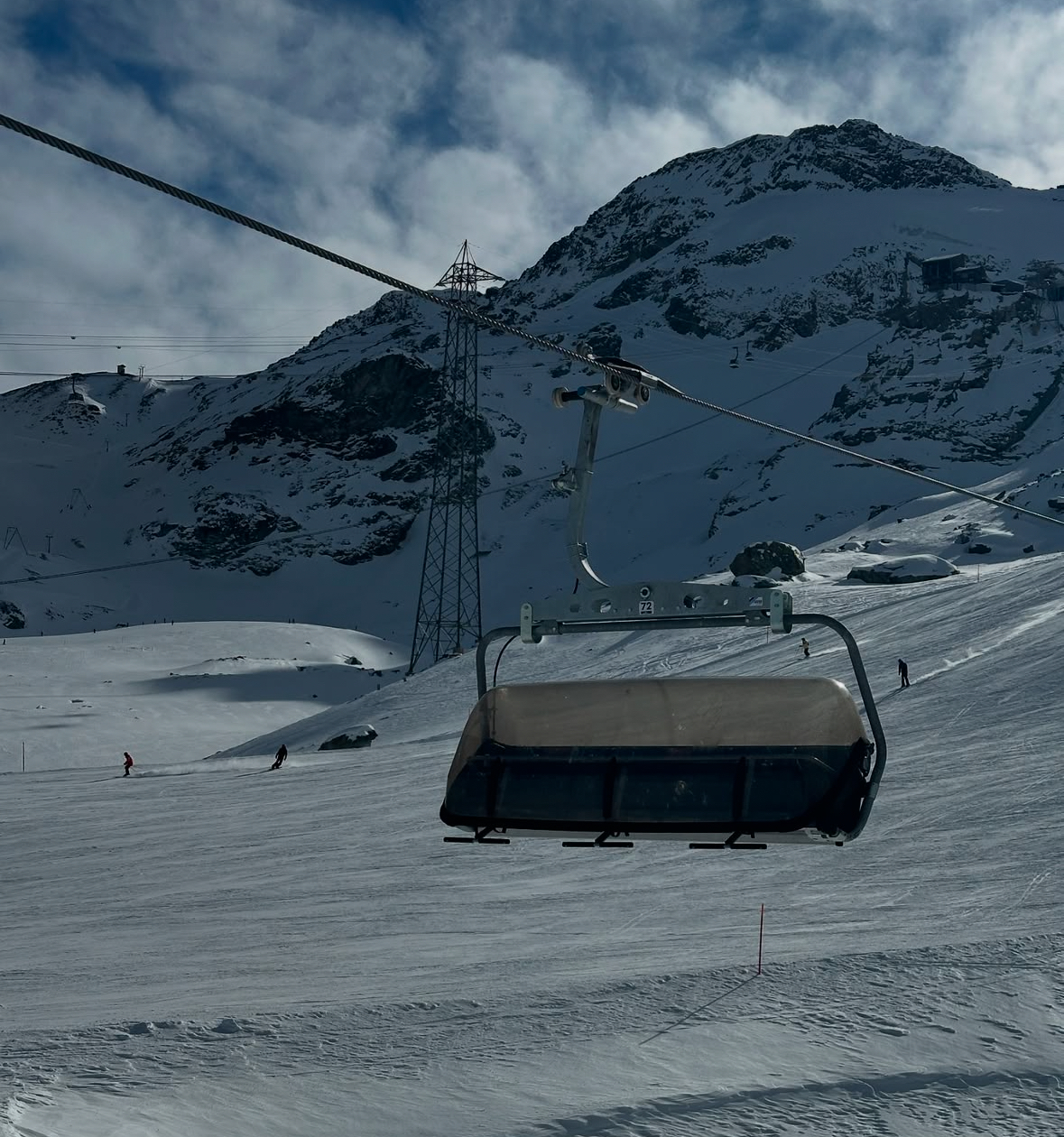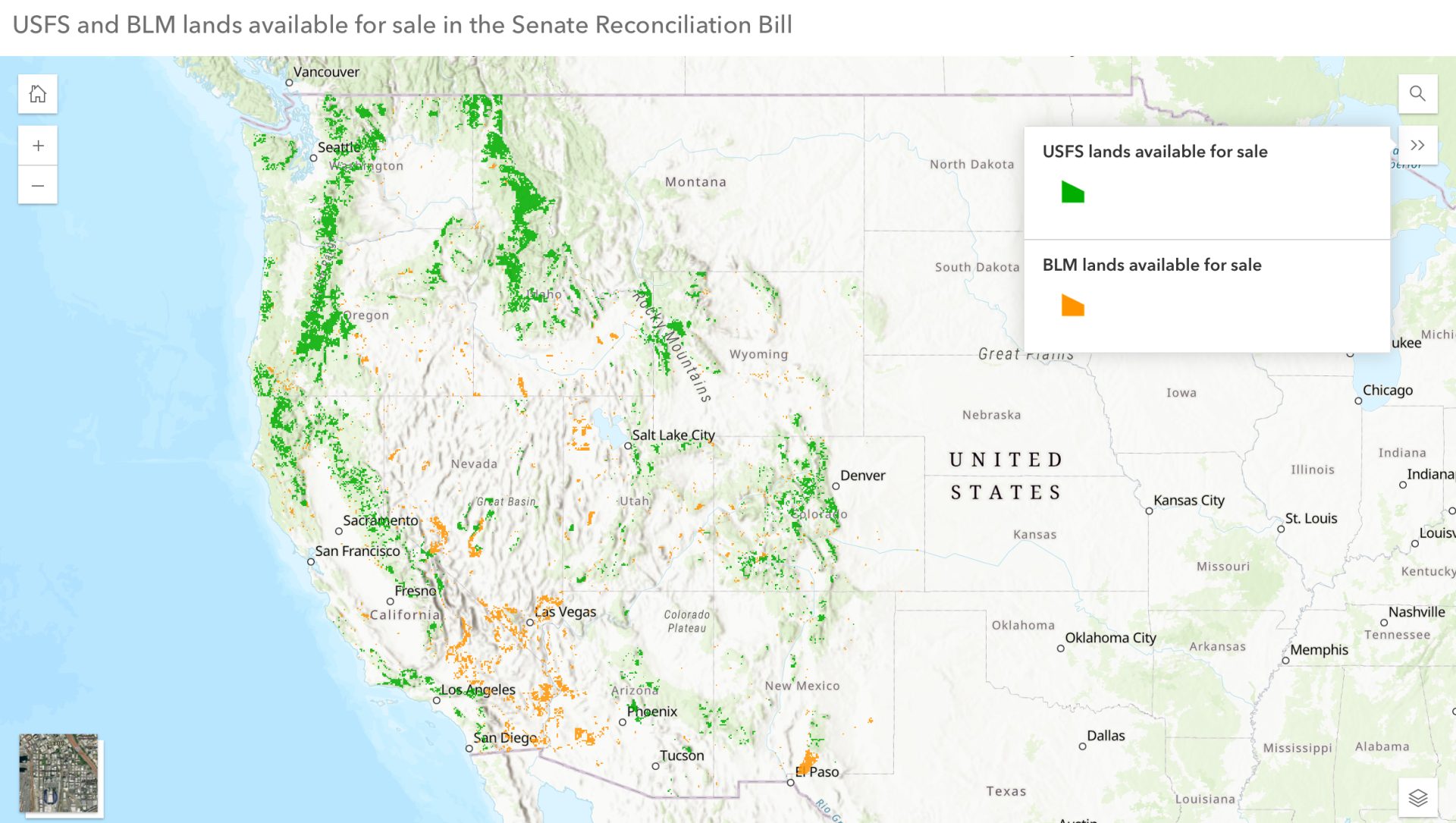
A controversial new proposal from Senate Republicans has sparked fierce opposition after revealing plans to force the sale of up to 3.3 million acres of federally owned public land across 11 Western states, including Colorado, Utah, and California. Introduced as part of the Senate Energy and Natural Resources Committee’s FY25 Budget Reconciliation bill, the plan would direct the Bureau of Land Management (BLM) and U.S. Forest Service (USFS) to sell between 2.2 and 3.3 million acres over five years—a move critics say could pave the way for the loss of access to hundreds of millions of acres of public land in the future.
While the 3.3 million acres represent only 0.5 to 0.75% of the 438 million acres managed by the BLM and Forest Service combined, opponents argue it sets a dangerous precedent. According to the Wilderness Society, more than 250 million acres of public lands could be at stake if the budget reconciliation package is approved. “Once they’re sold, they’re gone for good—fences go up, access disappears, and they are lost to the public forever,” the Southern Utah Wilderness Alliance (SUWA) chimed in.
The proposal, authored by Senator Mike Lee (R-UT), would give broad discretion to the Secretaries of the Interior and Agriculture to determine what qualifies as “housing” or “associated community needs.” While proponents argue the measure addresses a national housing shortage, critics highlight the lack of enforceable requirements around affordability.
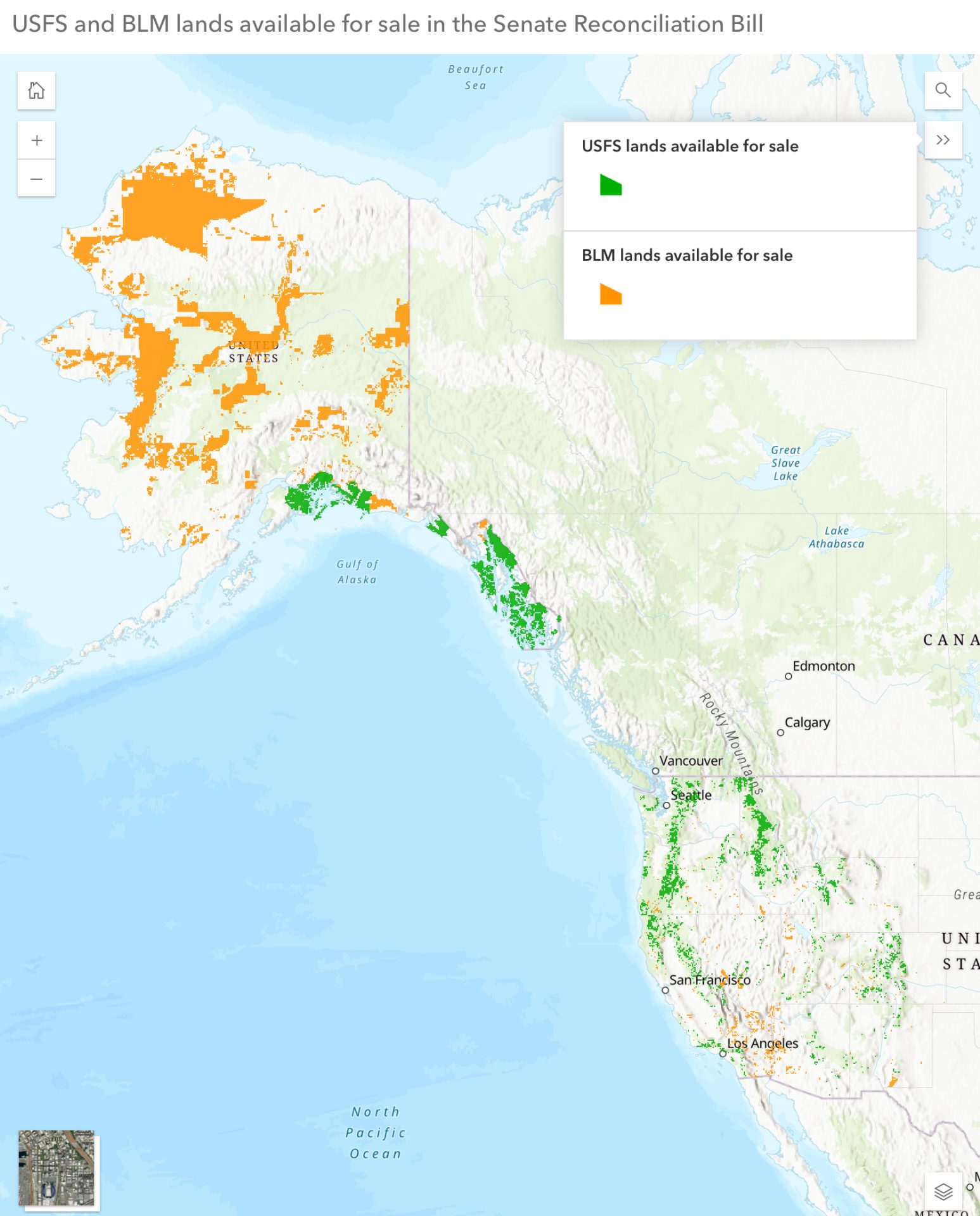
“America needs more affordable housing,” Interior Secretary Doug Burgum said, testifying in support of the proposal. “The federal government can help make that happen by making land available to build affordable housing stock.” Senator Lee framed the initiative as turning “federal liabilities into taxpayer value,” claiming it would benefit “hardworking American families.”
However, opponents across party lines are unconvinced. The Theodore Roosevelt Conservation Partnership (TRCP) slammed the plan as a “fire sale,” warning that hunters and outdoor recreation users would “lose access to large tracts of public land.” TRCP added, “Hunters and anglers have made it clear that reconciliation is not the appropriate vehicle for public land sales. The Senate proposal sets an arbitrary acreage target and calls for the disposal of up to six times more land than was proposed in early versions of the House budget reconciliation bill.” TRCP further stated that the bill risks prioritizing development over transparency and would primarily benefit speculators rather than meet real housing needs. Senator Martin Heinrich (D-NM) added that the proposal “jeopardizes our local economies and who we are as a nation.”
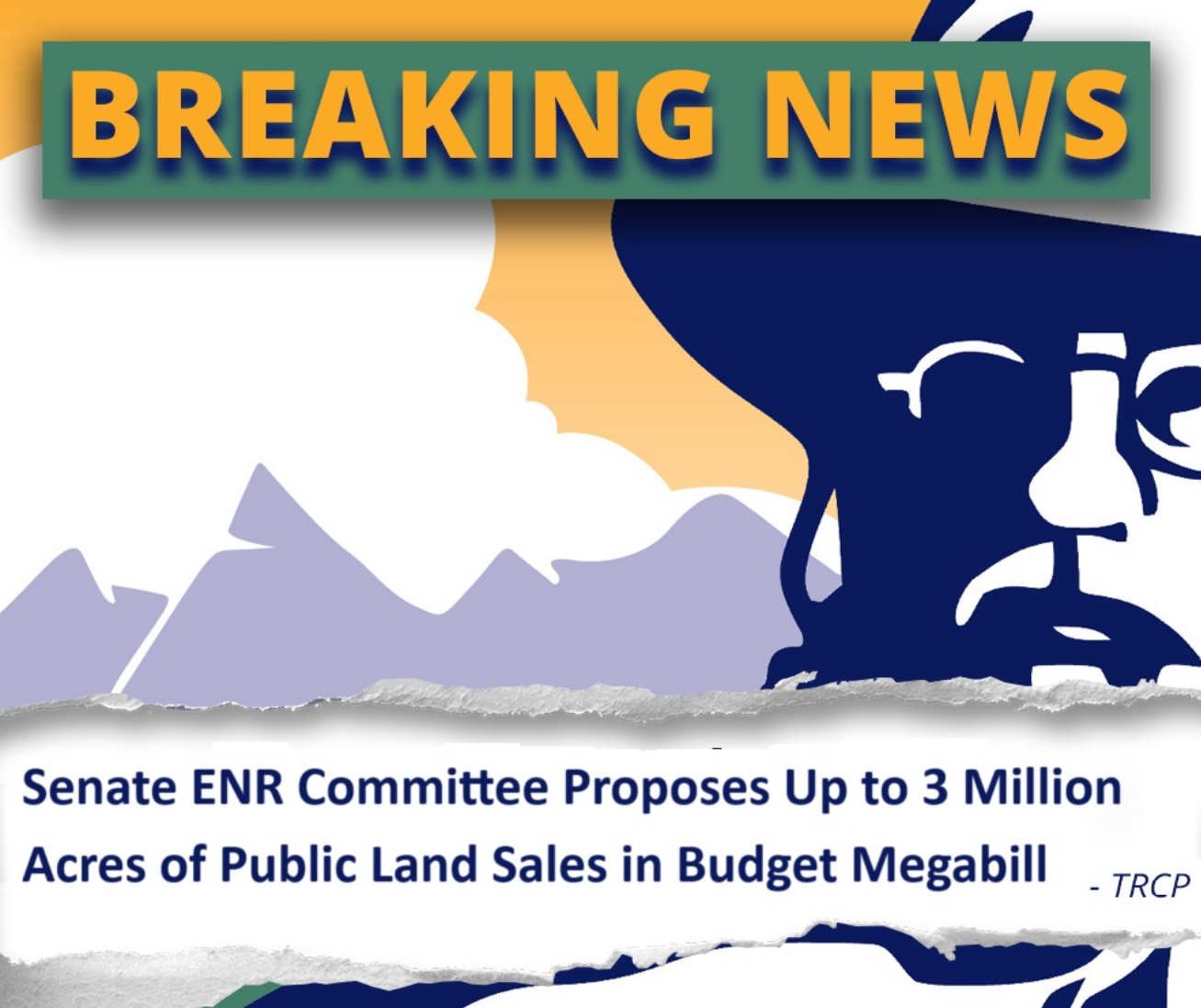
Backlash has been especially strong in Colorado, where the federal government manages over 24 million acres of public land. Representative Joe Neguse, who represents 11 counties in northwest Colorado, joined Senator Michael Bennet, Representative Jason Crow, Representative Brittany Pettersen, and State Senator Dylan Roberts in condemning the bill as “reckless” and “shameful.”
“Our public lands are not for sale now, or ever,” Senator John Hickenlooper said, the only member of Colorado’s congressional delegation on the committee. On his social media accounts, he called the bill a “top-down tyrannical execution of authority that strips Colorado and our local communities of our ties to some of our most sacred landscapes.”
Colorado’s legislature, too, has acted. Roberts, alongside Republican and Democratic colleagues from the Western Slope, successfully introduced a resolution opposing any national effort to sell or dispose of Colorado’s public lands. It passed both state chambers with near-unanimous support.
The bill’s summary projects that the land sales could generate $5 to $10 billion in federal revenue between 2025 and 2034, potentially creating “thousands of jobs.” But critics point to the vague language, lack of environmental reviews, and no guarantees for housing affordability. “There is no reason to believe that this idea is anything other than a political stunt to enrich wealthy individuals while fulfilling a wish list for extractive industries,” John Stavney said, executive director of the Northwest Colorado Council of Governments.
SUWA outlined how the bill could affect Utah’s iconic landscapes, including wilderness study areas and lands adjacent to Zion National Park. Areas like Happy Canyon and Big Ridge in the Dirty Devil complex—known for their remote beauty—are now on the chopping block. SUWA also criticized the bill’s exemption from public input, environmental oversight, and cultural and endangered species reviews.
There is also growing concern that lands could end up being developed into luxury housing or vacation homes, particularly in scenic areas, as the bill sets no restrictions to prevent such outcomes.
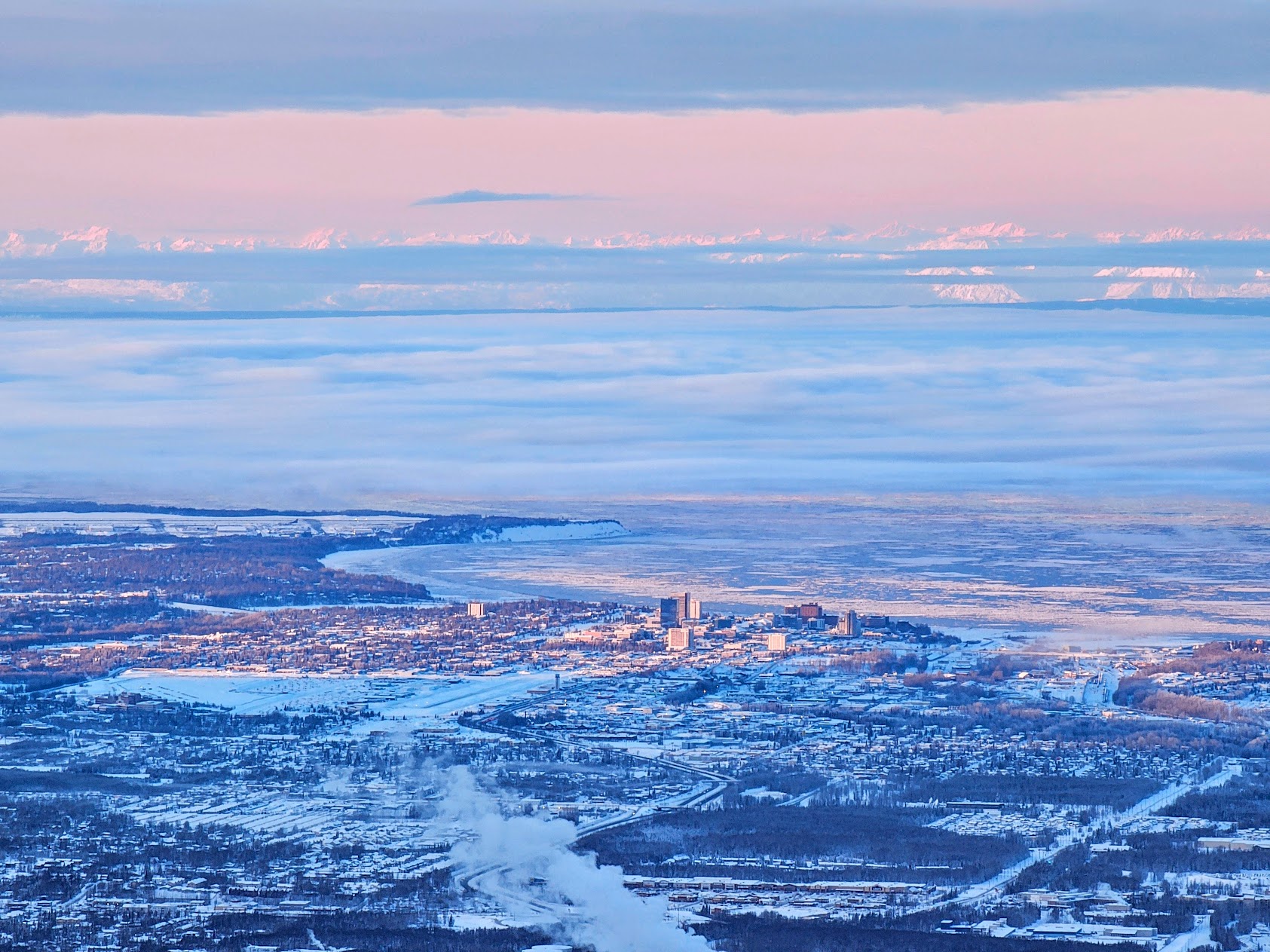
In Alaska, opponents say the bill could open up the Western Arctic, the country’s largest remaining piece of intact public land, to irreversible development. “Allowing development in the country’s largest remaining piece of intact public land, which is in the Western Arctic and which supports the livelihood of Indigenous people as well as critical wildlife habitats, is a shortsighted action that silences the voices of the Alaska Native communities and disregards the overwhelming public support for its protection,” Chris Hill said, CEO of the Conservation Lands Foundation. “Senator Lee’s latest amendment must be rejected to send a strong and lasting signal that America’s public lands are not for sale.”
In some areas, federal agencies have already used legal frameworks to allow public lands to be used for housing. Under the EXPLORE Act and parts of the 2018 Farm Bill, small parcels with pre-existing development were leased to local governments — such as in Summit County, Colorado, and Steamboat Springs. These projects, however, were carefully vetted and locally led — unlike the sweeping top-down sell-off now proposed.
A 2024 Conservation in the West Poll found that 70% of voters across eight Western states support conserving public lands over developing them for energy or housing. In Colorado, that number rises to 84%.
Even some House Republicans joined Democrats in blocking a similar land sale proposal from the House budget reconciliation bill in May, which targeted 500,000 acres in Nevada and Utah before it was dropped due to widespread criticism. “This administration has already demonstrated it does not act collaboratively with local communities, in good faith, or in the public interest,” Stavney said. “Selling off public lands is short-sighted, self-serving, and irreversible.”
As the Senate prepares to debate the bill in coming weeks, conservationists, outdoor recreation groups, state officials, and a bipartisan array of lawmakers have made one message clear: America’s public lands are not for sale.
